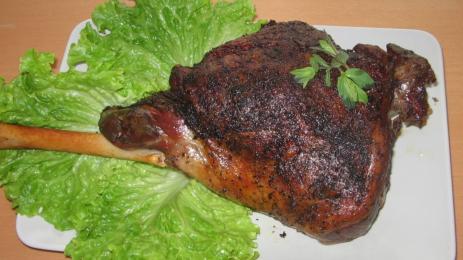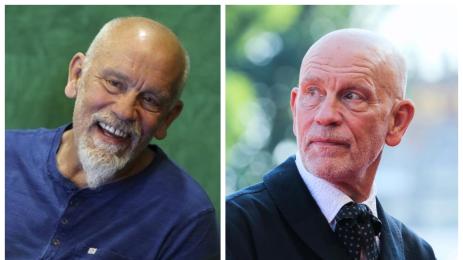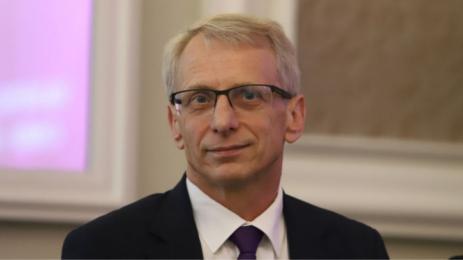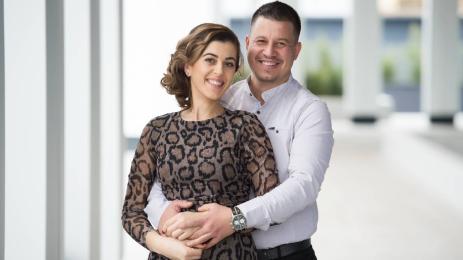The socialists know best, especially those with close ties with the Kremlin. “Socialism is like AIDS – it is a disease transmitted sexually or hereditary,” this outrageous remark made by the even more scandalous leftwing lawmaker Anton Kutev is a fitting description of the close ties of the Russian propaganda in which the so-called chief editor of the website Bivol Atanas Chobanov, his spouse Maria Onuchko, her father Victor Onuchko and the “Orthodox oligarch” Konstantin Malofeev find themselves entangled.
The socialists know best, especially those with close ties with the Kremlin. “Socialism is like AIDS – it is a disease transmitted sexually or hereditary,” this outrageous remark made by the even more scandalous leftwing lawmaker Anton Kutev is a fitting description of the close ties of the Russian propaganda in which the so-called chief editor of the website Bivol Atanas Chobanov, his spouse Maria Onuchko, her father Victor Onuchko and the “Orthodox oligarch” Konstantin Malofeev find themselves entangled.
The complex network of cogs of varying rank and position is a trademark of the Kremlin disinformation machine, used to spread manipulations in order to get inconvenient people out of the way towards gaining control of strategic targets on behalf of Moscow.
The latest example of such Communist-secret-agency-style campaign, linked by barely-detectable ties to Russia, Chobanov and Malofeev, is taking place right now. We are referring to the supposed attempted poisoning of the arms dealer Emiliyan Gebrev, who claims that someone tried to get rid of him with Novichok nerve agent. The alleged reason is the military plant Dunarit, stolen by Gebrev, the fugitive banker Tsvetan Vassilev and Konstantin Malofeev (the Russian standing mostly in the shadows but decidedly having its fingerprints all over the series of deals concerning the plant’s ownership). Chobanov has emerged as the main public supporter of Gebrev’s version of events. He is a Bulgarian migrant living in Paris under the guise of a scientific researcher and a journalist (see text box – editor’s note), married to a Russian and the son-in-law to long-time correspondent of RIA Novosti in France Victor Onuchko.
What is the connection between this cast of players of seemingly completely different caliber?
The simple answer is Russia, more specifically their Moscow ties, which have been the determining factor during the majority of their lives. To get a real sense of the big picture, we need to dig into the details, which are very important in this particular story, and the chronology of events. It all started way back in 1991, when Atanas Chobanov immigrated to Paris. Just two years earlier, the newly fledged capitalist had diametrically opposed political views, the true ones. In his youth, Chobanov was a Komsomol secretary, and in 1989 he applied for membership in the Bulgarian Communist Party (BCP). After the collapse of the communist regime, the future Bivol representative followed the new trend and adopted the rightwing ideas. The new beliefs went hand in hand with his political ambition and need for money. And almost like a Bukowski* character, he found the source of his bliss in the embrace with the secret services and the oligarchs.
In typical socialist style, everything is done along the line of personal-life relations. Cue the appearance of Maria Onuchko-Chobanov – the young Russian also lived in the French capital at the time and worked as a journalist. Unlike her future spouse, she worked for the overt Kremlin propaganda at the Russia Beyond the Headlines (RBTH) project (now Russia Beyond). She wrote primarily about culture and education, with one of her gems being an article about the Christmas tree gifted to the city of Paris by the Russian embassy there. It is worth noting that while Onuchko praised the initiative back then, her husband’s Bivol Colleague Dimitar Stoyanov protested the same kind of gesture in Bulgaria at the end of last year.
The online media outlet Russia Beyond the Headlines is among the ambitious ideas of Vladimir Putin and the Moscow machine for asserting influence in the West. The project was envisioned as the Russian version of the US government-funded Radio Free Europe/Radio Liberty, and its mission was to spread positive news about the “big brother” in a given country. A visit to the website of Russia Beyond shows that the media outlet has 14 services – in English, Russian, German, French, Spanish, Italian, Portuguese, Indonesian, Chinese, Croatian, Slovenian, Serbian, Bulgarian and Macedonian – but a common coordination centre. All departments of the website share the same contact address – 25/1, 115035 Pyatnitskaya St., Moscow, Russia. The website also informs that Russia Beyond is a project of the independent non-profit organisation ANO TV-Novosti. In reality, the RBTH was established in 2007 by the daily Rossiyskaya Gazeta – the official publication of the government of the Russian Federation. Part of the international media platform is the publication Ruski Dnevnik [Russian Diary], which in Bulgaria is published also as a supplement to the official BSP publication Duma.
Information about Ruski Dnevnik can be found in the flagship of propaganda in Bulgaria – Capital. Almost four years ago, Capital wrote that “the publication [Ruski Dnevnik] is the lightest version of the official Russian propaganda. In Bulgaria, the project is realised on the basis of a licence agreement signed between Daniela Malinova (official representative of the RBTH for the country) and Rossiyskaya Gazeta. Daniela Malinova is the spouse of Nikolay Malinov, former member of the Executive Bureau of the National Council of the BSP, chairperson of the National Movement ‘Russophiles’, and former publisher of Duma.” This presentation, however, omits several extremely important and telling details. Malinov is among the few Bulgarians to have received the “Pushkin” state honour given out by the Kremlin – he was awarded one in 2011 at the personal suggestion of then-President of Russia Dmitry Medvedev as recognition for his “conservation and preservation of emblematic symbols of Russian-Bulgarian friendship”. Malinov is friends with the “Orthodox oligarch” Konstantin Malofeev. He was the person who introduced Malofeev to Tsvetan Vassilev – the Russian oligarch admitted as much in an interview. Thanks to these connections Malinov almost stole the channel TV7 (funded with nearly BGN 300m in CorpBank loans) under the nose of the state on behalf of Malofeev and with the blessing of Tsvetan Vassilev. The TV7 saga unfolded at a time when another of the Russian magnate’s pawns was strutting in Bulgaria – Pierre Louvrier, who was tasked with acquiring in exchange for €1 six of the “golden assets” bought with CorpBank money. For those who have trouble remembering, let us remind that the list included Dunarit, about which Chobanov is now passionately talking to support the manipulations of the Gebrev-Vassilev duo.
These days, Chobanov is lying that the arms dealer was poisoned namely because of his interest in the military plant,
drawing attention to fictitious Russian ties in order to conceal the real ones of Tsvetan Vassilev and Emiliyan Gebrev with Konstantin Malofeev. This selective approach is a pattern in the work of Chobanov and his Bivol colleagues. A good example is the fact that Malofeev, who has stubbornly kept a presence in the Bulgarian public consciousness in the past few years, has only sporadically appeared in their pieces (once again, connected to Dunarit).
But let us go back to the RBTH, where Chobanov’s wife Maria Onuchko is employed. If four years ago the “pro-Atlantic” Capital viewed the publication as an overt Russian propaganda, nowadays the media outlet published by another indicted oligarch, Ivo Prokopiev, has obviously abandoned its anti-Russian attitudes. In its third issue of 2018 (March) Capital tried to downplay the tangle of unmistakably Russian ties, in which Chobanov is caught up, by noting that “the Bivol activist Atanas Chobanov was married to a Russian” but that that did not signify anything.
Whether the RBTH is a propaganda mouthpiece of the Kremlin can be judged by the western analysts’ opinions. In his Washington Post review of Rossiyskaya Gazeta’s first supplement, media critic for Slate (owned by the Post) Jack Shafer wrote in August that “under the broken-up syntax of these laughable creations peeks the blood-red heart of the blind Russian propaganda”.
The topic was further elaborated on in an article on Russian propaganda in Paris written by Marlene Laruelle for the prestigious Carnegie Council. The article was headlined “Russian Soft Power in France: Assessing Moscow's Cultural and Business Para-diplomacy”. The term “soft power” is a reference to statements made by Russian President Vladimir Putin, who defines it as “a set of tools and methods for attaining foreign policy objectives without the use of arms, but by employing information and other levers”. Laruelle’s piece singles out the RBTH as an example of “soft power”. Later in her text, a huge paragraph is dedicated to the immense influence that Malofeev, identified as one of the conductors of the Kremlin’s propaganda in the West, has in Paris. According to the author, the biggest conduit of Malofeev’s influence in France is his charity St. Basil the Great Charitable Foundation. “Orthodox charity foundations run by businessmen and oligarchs close to the Kremlin such as Vladimir Yakunin and Konstantin Malofeev constitute another central element of Russian presence in France. They have their own agenda but share many joint patterns of influence with the other actors of Russia's soft power,” Laruelle wrote. She notes that Yakunin and Malofeev knew each other since the early 1990s, when both were members of the International Center for Business Cooperation, a KGB-controlled organisation based in St. Petersburg that was in charge of exports to the West. According to the study, Malofeev is close to Igor Shchyogolev, the minister of communications between 2008 and 2012; he is even godfather to Shchyogolev's two children. These days, the Orthodox oligarch is on the sanctions list of the EU and the US, while Shchyogolev is featured under number 18 on the US Department of the Treasury’s list of people who benefited from the Putin regime.
Here comes the latest telling connection of Chobanov with the clique – Shchyogolev was a correspondent for the TASS News Agency in Paris between 1993 and 1997.
He went there the same year that Chobanov’s father-in-law, who also served as journalist in destinations important to the Kremlin, left from Paris to Brussels. As we mentioned earlier, Maria Onuchko is daughter of the long-time correspondent of RIA Novosti in Paris and Brussels Victor Onuchko. For a long time, he was chairperson of the Russian Interfax, as well as… the RBTH. Prior to the Perestroika, he was a long-time correspondent of Russian publications to Africa. It is no secret that such positions are not occupied by just anyone.
France was of particular interest to the Soviet spies in the 1980s. Agents of the KGB and GRU of the Soviet Army walked around Paris, gathering intelligence about President Francois Mitterrand and the government, which at times turned against him. At the same time, the technical intelligence officers frequented the Air Expo in Bourget trying to steal the high-tech novelties. During the Cold War era the COCOM headquarters was based in Paris. This was the Coordinating Committee for Multilateral Export Controls founded mainly by NATO states. It monitored exports of dual-use goods to the USSR and its satellites in the Eastern bloc. The Soviet spies were very inventive in circumventing the bans and managing to get hold of goods and technologies that could be used for defence purposes.
Chobanov himself had secret service aspirations but they remained mostly a dream. Before becoming an “independent journalist”, Onuchko’s son-in-law tried to earn a fee from the Bulgarian secret services. According to Bulgarians residing in France and staying in touch with the Bulgarian embassy in Paris, Chobanov is rumoured to have offered his services as an associate of the Bulgarian secret services on numerous occasions, but once it became clear he would not be rewarded financially for the effort, he made an about turn and started slandering them. Meanwhile, apparently he found a way to join someone else’s propaganda machine – and it is along the family ties, no matter how hard Chobanov tries to pose as a pro-Western journalist. Finally, can you guess a translated interview with who was featured in the launch of the Bulgarian service of the RBTH? With Malofeev, of course. Coincidence? Hardly.
*People with no morals often considered themselves freer, but mostly they lacked the ability to feel or think rationally. So they embraced casual sex with oligarchs. Charles Bukowski (Women)
French media caught Chobanov in syphoning off state treasury
Several years ago, the French media еexposed Atanas Chobanov as draining the state budget through the National Center for Scientific Research (CNRS) where he works. These revelations came only two years after the Monitor Agency wrote that Chobanov was sponging on the French taxpayers living in a company apartment as a “needy” person. In some Parisian websites Chobanov was quoted as an emblematic example of syphoning off the treasury via ineffective appointments in CNRS. In these articles it was pointed out that Chobanov, although employed as phonology researcher who posed as Bivol’s editor-in-chief, actually had only two publications over the span of five years. “Such low productivity coincides with his deep involvement in the Bulgarian politics. First of all, he is involved in the critically-minded online media BalkanLeaks and Bivol where he is the editor-in-chief and publishes extensive articles on a regular basis. Secondly, he was the ticket leader of the Bulgarian Green Party during the latest EU elections. This is a ridiculous but not an isolated case. Does CNRS have to finance political activity of a foreign researcher at the expanse of French taxpayers,” wrote at that time Andres Jalon of the Mediapart website.
The employees of the Center declined comment when the Monitor Agency asked them when Chobanov was appointed to his post in CNRS and if he is still employed there, how many publications he had and if there was a disciplinary action against him. First, they said that they have “nothing to share” about the private life of Mr Chobanov. Asked to specify what they mean if the questions are related to his professional activity only they said, “Our answer is that we won’t answer.” Which leaves a big question mark over Chobanov’s employment in CNRS.
22 global newspapers disseminate RBTH
Russia Beyond the Headlines is a project that encompasses 22 newspapers, 18 websites in 16 languages and covers 22 countries. It boasts 32 million readers. The project popularises the Russian stands and the achievements of Russia abroad. The officially announced goal of this project is to collect and publish the materials pertaining to the Russian politics, public life, culture, business, science, etc., which are not “usually covered by foreign media for their local audience,” reads the RBTH site. In July of 2015, the Bulgarian diplomatic sources in Moscow registered unusual activity in the RBTH sites related to the events unfolding in Bulgaria. According to data of 24 Hours daily, at that particular moment the most active site was the one based in Bulgaria which was connected with the French edition of Rossiiskaya Gazeta, part of the pro-government project RBTH. The publications coincide with the time when President Rossen Plevneliev was on an official visit in Ukraine and foreign minister Daniel Mitov went to the US. At that time Sofia took part in NATO military exercise and public debates were held about the participation of heavy military vehicles in it.
Belgrade – hideout for fugitive banker and center of Putin’s supporters
Belgrade is only 400 km away from Sofia but it is far enough for it to become a hideout for ex-banker Tsvetan Vassilev who is hiding from the Bulgarian justice system there. It was in Belgarde that the indicted financier met with Nikolay Malinov to negotiate the acquisition of TV7 for Russian oligarch Konstantin Malofeev. The idea was to lay hands on the TV channel via another figurehead of the Orthodox magnate – Greek businessman Yanis Karageorgis. At the same time, the Serbian capital was a magnet for Malofeev himself and he tried to make it a center for Putin’s talking points. To this end, in 2016 he declared his wish to buy a whole media empire in Serbia. As Malofeev himself said, he had a broad outlook on his task to strengthen the relations between Moscow and the Orthodox countries, such as Greece, Bulgaria and Serbia. In pursuit of this goal he financed the “volunteer” and paramilitary formations of Bulgaria and Serbia during the turmoil in Ukraine. He also sponsored the 18 international observers at the elections in Donetsk and Lugansk.
Spying propaganda center shocked Paris
Konstantin Malofeev, the RBTH employers of Maria Chobanov and the entire megalomaniac Orthodox complex financed by the Kremlin in the center of Paris. These are the three examples of the so-called “soft force” of the Russian propaganda in the capital of France cited in the report of Carnegie Council. The above Orthodox complex occupies the area of 4,200 sq.m near one of the central bridges over the Seine, just half a kilometer away from the Eiffel Tower. On this tempting plot of land there now stands a huge cathedral in eclectic style. The Pushkin education center for those who learn Russian is also located there, the fact which was extensively described in the articles by Maria Onuchko-Chobanov and her colleagues from the RBTH. The Kremlin has poured EUR 90m in the project under pompous name “Russian Orthodox Spiritual and Cultural Center” and the very Center is guarded like Fort Knox, it is very difficult for an ordinary visitor to enter it. The center was inaugurated in May 2016 and, according to the initial plan, Putin himself had to cut the ribbon. He, however, postponed the visit being busy in Syria. The Center’s inauguration stirred heated debates within the French community and not only because of the appearance of this eclectic architectural miracle similar to a cross between a mini-Kremlin but in gold, topped with cupolas resembling the St. Basil cathedral in Moscow. The shock was provoked by the information that probably the premises in the center of Paris can be used for spying. The Paris-based English language edition Worldcrunch released an article titled “Is Russia’s New Cultural Center in Parris Used for Spying” which maintains that a former ambassador to Moscow (it is not specified who of them – Ed.’s note) sent a note to the Elysee Palace claiming that he was sure the Russian intelligence services were using the center’s premises otherwise meant for culture conferences.
 Монитор
Монитор


















